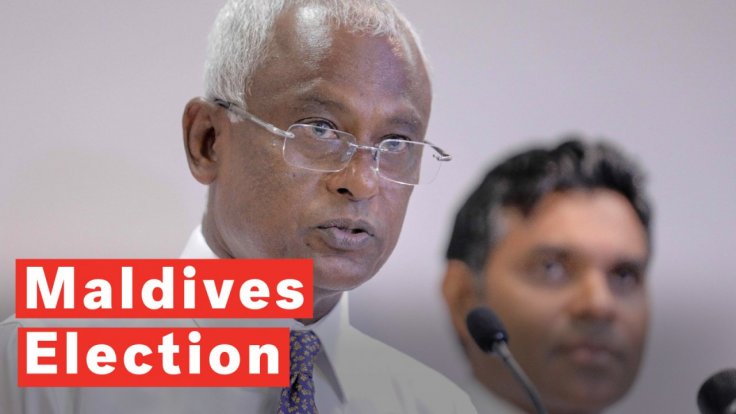
What would come as a relief for India, Maldives President-elect Ibu Solih may put on hold Chinese-funded Belt and Road Initiative (BRI) projects in the country, reports Economic Times. India has been expressing concern about Beijing's increasing influence in the Indian Ocean region for some time now.
There are speculations that Solih may even cancel some BRI projects, which were the brainchild of outgoing pro-China president Abdullah Yameen, who, according to his critics, allegedly received $1.5 million as election funds from China.
However, the main challenge confronting Solih when he formally takes over as president will be the repayment of loans extended by China for developing different projects in the country.
Maldives is staring at liabilities of $1.4 billion, which is nearly a third of the GDP, mainly due to Yameen's policies.
Around 75 per cent of the debt was generated from implementing BRI projects and Soilh, while campaigning, highlighted the financial difficulties the island nation is facing because of Chinese debt.
Former Maldives President Mohamed Nasheed, who is Solih's biggest backer, said that every agreement his country signed with China during Yameen's five-year rule will be reviewed after his Maldivian Democratic Party won the Presidential polls on September 24.
According to the Center for Global Development, a Washington DC-based think-tank tracking BRI, the Maldives, whose economy is tourism based, is one of the most at-risk countries where BRI projects are being implemented because of debt.
China started developing major infrastructure projects in the country in 2014 which included a bridge connecting capital Male to close-by island and expansion of the airport in Male. It is also constructing a 25-storey apartment complex and hospital.
The government leased an uninhabited island for 50 years to a Chinese company for a price of $4million, which will develop it for tourism. In September 2017, both nations signed a free trade agreement.









